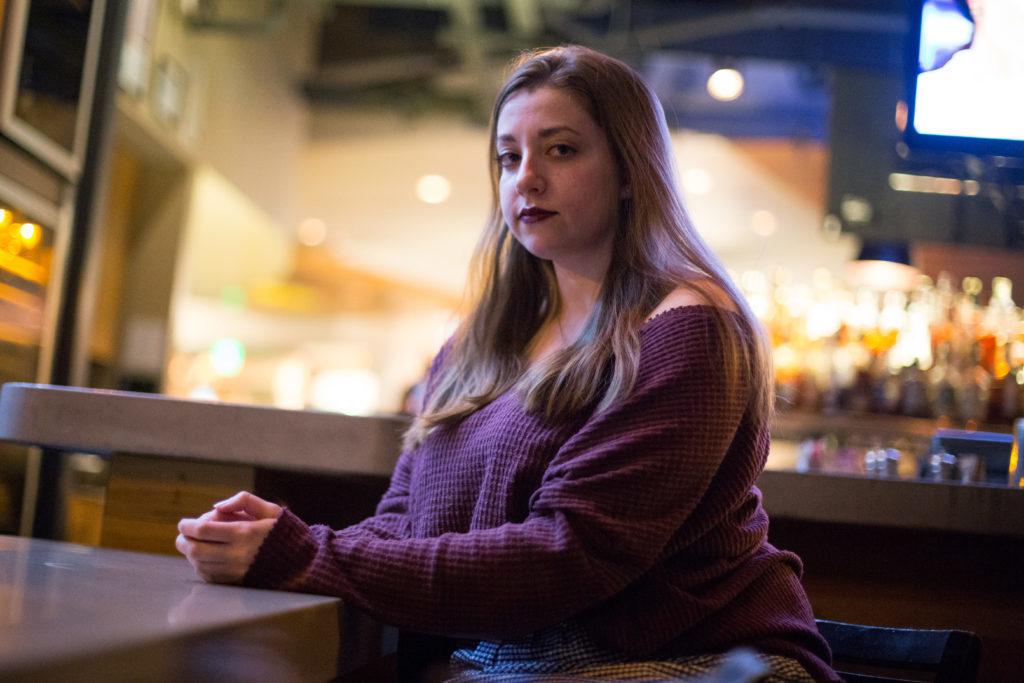Queer women students said they often leave local gay bars feeling left out.
From being approached by strangers making inappropriate comments to being mischaracterized as a straight girl and ridiculed by gay attendees, these exchanges are a constant for queer women, transgender people and non-binary individuals in LGBTQ nightlife spaces.
There are more than 16 gay bars in D.C., along with several weekly events hosted at non-gay bars and non-LGBTQ establishments with large LGBTQ followings. But the last standing lesbian bar in D.C. – Phase 1 – closed in 2016. Now, queer women students, who were too young to attend the venue when it was open, bemoan the state of nightlife spaces for queer women.
The Hatchet interviewed six students who agreed there is an overall lack of organized entertainment with queer women and non-normative identities in mind, and LGBTQ spaces that students frequent in the District are often centered around cisgender, gay males.
“All the LGBT bars and clubs I’ve been to specifically cater to the G. Just Gay. Not really anyone else. And usually, it’s cis gay white men,” Lindsey O’Connell, a senior art history major, said.
Cameron Appel, a senior who identifies as bisexual, said she went to Nellie’s – a gay sports bar located at 900 U St. NW – before she even knew she was queer, but she often feels unwelcome at D.C.’s staple LGBTQ bars. She used to think the grimaces she’d receive from being a girl in a gay bar or drag show were normal, until a former women’s studies professor told her the D.C. nightclub scene was not historically gay-male centered, and that establishments for queer women had vanished over the last few decades.
“That made me realize, oh my god, all these places I’m going to were totally not catered to me at all,” she said.
Junior Olivia Eggers came to GW at the same time as she was coming to terms with being a lesbian. She said she searched for spaces where she could find community.
The 18+ nights at Town Danceboutique acted as a haven for her LGBTQ friends, but Eggers had anxiety navigating the environment. She cited feeling “stuck” within her own identity and having difficulty dealing with the club’s sensory overload and the “are-they-or-aren’t-they” girls who gave her the cold shoulder.
“It just feels like that predatory lesbian sort of trope comes out when I’m in those spaces,” Eggers said. “That makes me nervous cause that’s not how it should be.”
Despite a lack of concrete spaces around the District, there are events with specifically queer women in mind and students who have attended them say they have found solidarity – with some flaws.
Jessica Martinez, a senior who is transgender, attended an 18+ event called “Queer Girl Dance Party” at the Black Cat, located at 1811 14th St. NW. But she said the event was attended by more straight than LGBTQ people. She often met women in their 20s and 30s who were friendly and welcoming.
“I felt very accepted there,” she said. “Everyone was really pretty or very butch, however they identified, just generally having a good time with each other.”
It was a slightly different energy than what she was used to at the well-known D.C. gay bars – like Trade or Town – Martinez said. At these places, the mostly-male gay attendees compliment her hair and makeup, but Martinez said there is still transphobia that exists.
“A question I get asked a lot is, ‘where do all the trans ladies hang out?’” she said. “And I have no idea how to answer because there is no place.”
All interviewed students said although they were able to find events, none were exactly the right fit. But five organizers and promoters of queer-women-centric events in D.C. said groups host monthly and seasonal events that provide LGBTQ nightlife options for women. Events are publicized through newsletters as well as Facebook posts and events.
The events are held on a rotating basis at different bars, or are repeated at fixed establishments. But many of the events are held in spaces that are barred for those under 21, making them inaccessible to younger college women.
Rebecca Pilar Buckwalter-Poza, who began organizing the monthly event Women Crush Wednesday at Trade in June, said her event arose from a conversation with someone who worked at the bar that had said they wanted a more inclusive event to satisfy different groups in the LGBTQ community.
Buckwalter-Poza said the monthly event fosters a community, and she personally recognizes many of the approximately 125 attendees who attend each month as regulars. The events are not necessarily for “romantic purposes,” but rather a place to foster community while being “casual and accessible and affordable.”
“I think it’s become a space for us,” Buckwalter-Poza said. “The lack of a permanent place played into it, and so did the election and just feeling like our community – as a whole, the LGBTQ community – is under attack in a very real way day to day.”
With a lack of spaces around the District, students have carved out their own spaces. The private Facebook page GW Gaydies, which caters specifically to queer women and non-binary people, has been used to organize campus-specific events.
Senior Emily Clott said she posted on the page telling members about a party at her apartment. More than 40 students showed up to be in the presence of other queer women, celebrating each other and showing solidarity.
“I just tend to find more in common with and enjoy spending time with queer women and people,” Clott said.





